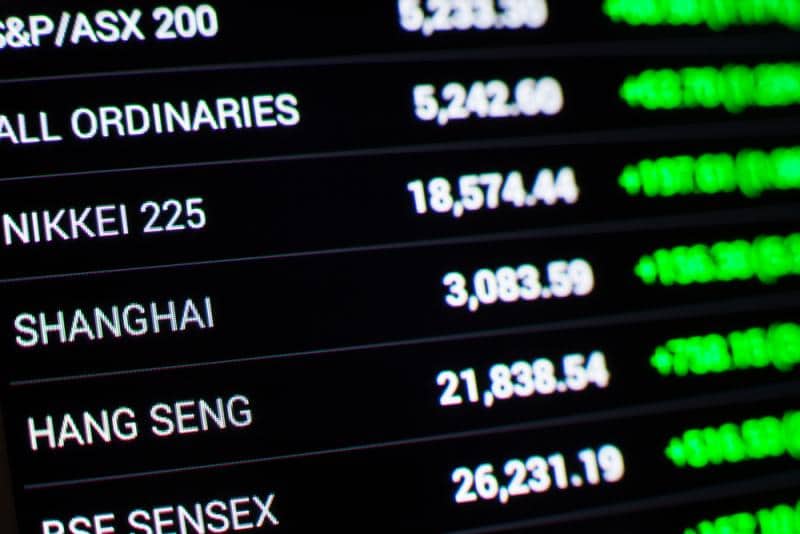
Asian markets traded lower on Monday as investors kept an eye on political developments in the U.S. after a government shutdown began last week.
Japan’s Nikkei 225 hovered around the flat line. Automakers were mixed: Toyota declined 0.53 percent while Mitsubishi Motors tacked on 1.62 percent. Technology stocks traded mostly higher, with Sony rising 0.33 percent and SoftBank Group advancing 0.86 percent.
Meanwhile, South Korea’s Kospi declined 0.96 percent as index heavyweight Samsung Electronics fell 2.27 percent. Other technology stocks were mixed, with chipmaker SK Hynix declining 2.32 percent and LG Display gaining 1.48 percent.
The manufacturing, finance and retail sectors traded lower for the most part, with steelmaker Posco losing 2.46 percent and Lotte Shopping trading flat.

Down Under, the S&P/ASX 200 gave up gains seen earlier in the session to trade lower by 0.11 percent. The heavily-weighted financials sector declined 0.68 percent, weighing on the broader index. Shares of Commonwealth Bank sank 1.44 percent, underperforming other banking names in the morning.
National Australia Bank, another of the country’s “Big Four” banks, is reportedly considering spinning out its wealth arm for a potential listing, the Australian Financial Review reported, citing sources. NAB shares were lower by 0.53 percent.
Greater China markets were narrowly mixed. Hong Kong’s Hang Seng Index was off by 0.05 percent, but casino stocks traded in positive territory — with Wynn Macau higher by 2.8 percent in early trade. The technology and financials sectors were mixed in the early going, meanwhile, with Tencent higher by 0.53 percent and HSBC softer by 0.53 percent.
On the mainland, the Shanghai composite added 0.19 percent, while the Shenzhen composite shed 0.32 percent. The blue chip CSI 300 index was higher by 0.52 percent.
US government shutdown extends
Stateside, the U.S. government shutdown will continue for a third day after the Senate failed to secure a deal on Sunday night.
Prior to the Sunday development, there had been some signs of progress, with Republicans appearing unified over plans to end the impasse with a temporary solution. Democrats, however, want an immigration agreement in place before they support a spending plan.
“The shutdown in the U.S. looks set to dominate market attention this week. It is likely to result in plenty of noise, but no dramatic shifts in trends,” ANZ Research said in a morning note.
U.S. futures tracked lower on Monday, but pared losses late in the morning. The Dow Jones industrial average futures was last lower by 24 points. On Friday, stocks had closed in positive territory as earnings season rolled on.
Currency watch
Against the yen, the dollar traded at 110.81 — near Friday’s close of 110.76. The dollar index, which tracks the dollar against a basket of six currencies, traded at 90.602.
The euro traded at $1.2233 at 10:10 a.m. HK/SIN after rising as high as $1.2274 earlier. The move higher came after Germany’s Social Democrats agreed to embark on formal coalition negotiations with Chancellor Angela Merkel’s government following a weekend party vote.
French President Emmanuel Macron’s weekend comments were also in focus for currency markets. Macron said the U.K. could have a bespoke arrangement with the European Union following Brexit, although London would not have the same degree of access to the bloc if the U.K. left the single market, Reuters reported. The pound last traded at $1.3866.
What’s on tap
Monday’s economic calendar is fairly light (all times in HK/SIN):
- 11:30 a.m.: Thailand trade data
- 4:00 p.m.: Taiwan unemployment
Central banks, meanwhile, will be in focus this week as the Bank of Japan convenes a two-day monetary policy meeting beginning Monday. No major changes are expected.
In Europe, the European Central Bank is set to make its interest rates decision on Thursday.
